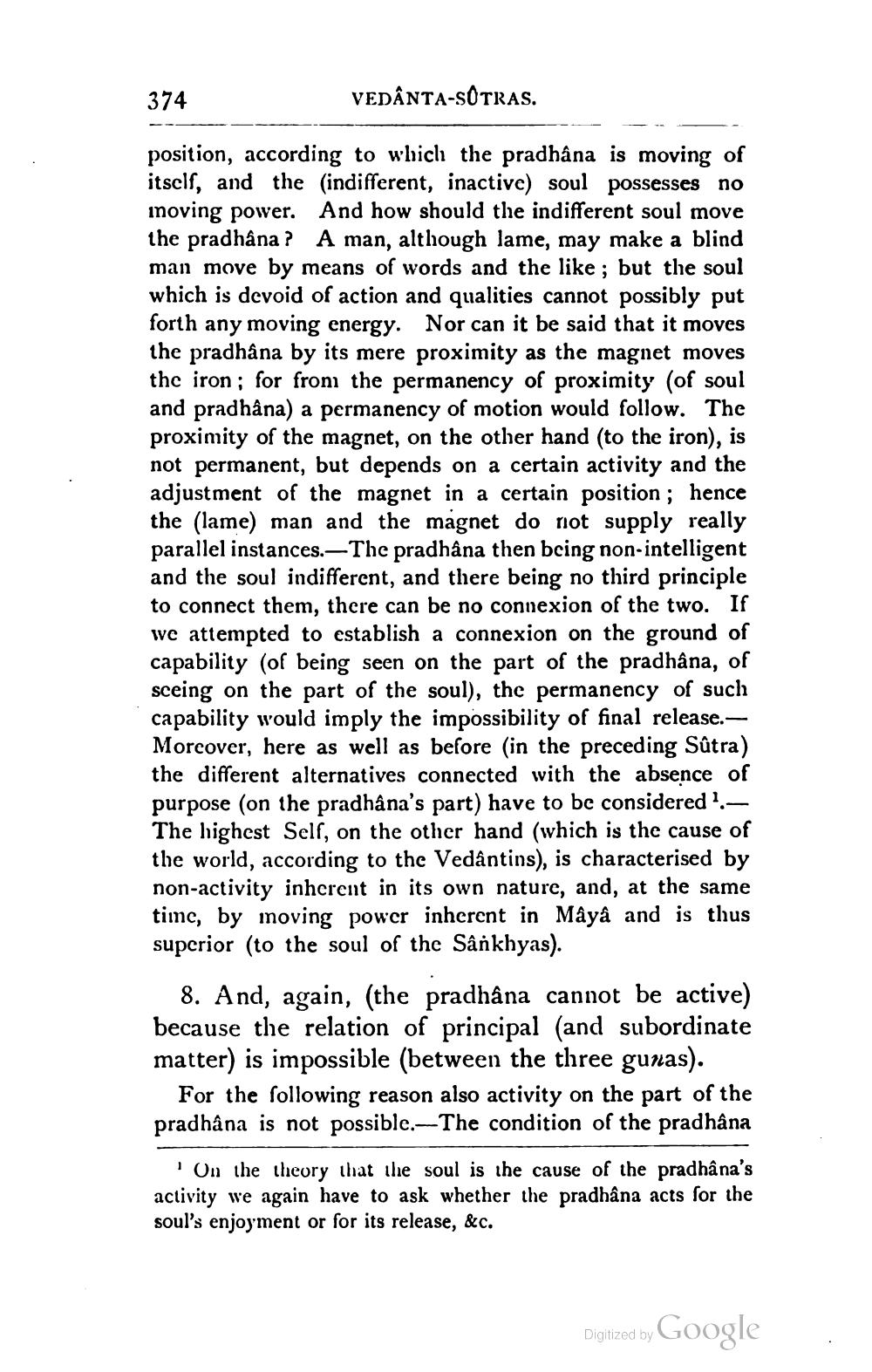________________
374
VEDÂNTA-SOTRAS.
-
--
position, according to which the pradhana is moving of itself, and the (indifferent, inactive) soul possesses no inoving power. And how should the indifferent soul move the pradhana? A man, although lame, may make a blind man move by means of words and the like ; but the soul which is devoid of action and qualities cannot possibly put forth any moving energy. Nor can it be said that it moves the pradhana by its mere proximity as the magnet moves the iron; for from the permanency of proximity (of soul and pradhâna) a permanency of motion would follow. The proximity of the magnet, on the other hand (to the iron), is not permanent, but depends on a certain activity and the adjustment of the magnet in a certain position; hence the (lame) man and the magnet do not supply really parallel instances.—The pradhana then bcing non-intelligent and the soul indifferent, and there being no third principle to connect them, there can be no connexion of the two. If we attempted to establish a connexion on the ground of capability (of being seen on the part of the pradhâna, of sceing on the part of the soul), the permanency of such capability would imply the impossibility of final release.Moreover, here as well as before in the preceding Sûtra) the different alternatives connected with the absence of purpose (on the pradhana's part) have to be considered '.The highest Self, on the other hand (which is the cause of the world, according to the Vedântins), is characterised by non-activity inherent in its own nature, and, at the same time, by moving power inherent in Mâyâ and is thus superior (to the soul of the Sânkhyas).
8. And, again, (the pradhâna cannot be active) because the relation of principal (and subordinate matter) is impossible (between the three gunas).
For the following reason also activity on the part of the pradhana is not possible. The condition of the pradhana
On the theory that the soul is the cause of the pradhâna's activity we again have to ask whether the pradhâna acts for the soul's enjoyment or for its release, &c.
Digitized by Google




